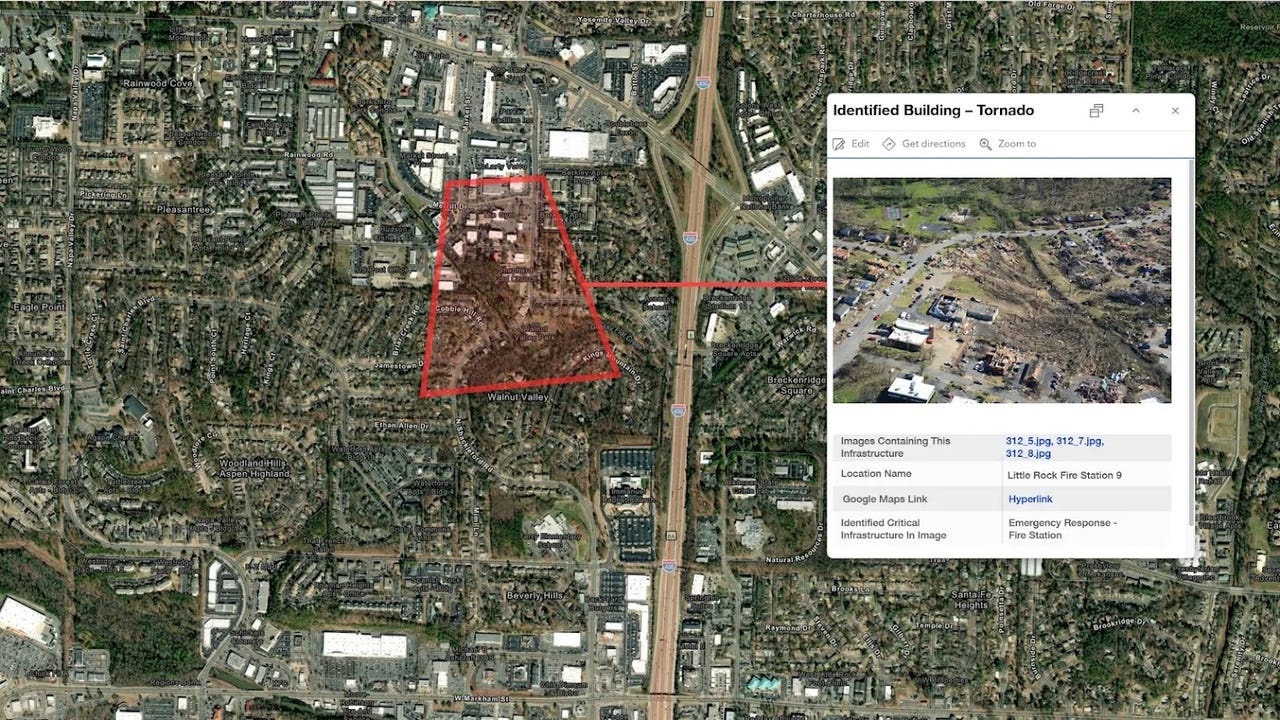National Guard will use Google’s AI for faster disaster response and recovery

Bellwether’s tools use AI and ML to analyze aerial imagery of disaster scenes.
Bellwether
The National Guard will soon start taking advantage of AI to help it more quickly respond to disasters. The new AI tools will be able to evaluate aerial images of disasters in just a few seconds, identify any critical infrastructure being affected, and generate labeled maps. The AI technology comes from Bellwether, a group within a lab named X, which is part of Google’s parent company Alphabet.
Coordinating all disaster recovery conducted by the military in the US, the National Guard handles damage assessment, search and rescue, and logistics. But it’s hampered by a slow and outdated system that often delays recovery efforts, according to a case study from X.
Also: The White House plans to regulate the government’s use of AI
Currently, the National Guard manually assesses the damage, meaning that people scour thousands of images of the disaster taken by planes, search through databases to find photos of the exact locations, and look for any changes in the impacted infrastructure. The organization must then wait for all the items to be analyzed before it can deploy the right people and resources to tackle the problem.
“Right now, our analysts have to spend time sorting through images to find the ones that cover the areas most affected by natural disasters,” said Col. Brian McGarry, who oversees the National Guard’s operations, plans, and training division, as quoted in the case study. “They then have to correlate those images to surrounding infrastructure, label all the relevant features, and only then can highlight the significant damage and send it forward to first responder teams.”
Looking to modernize the disaster recovery approach, the Defense Innovation Unit (DIU), an organization within the Department of Defense, was hunting for the right partner and tools. That search led it to the Bellwether team at Alphabet.
Working together, Bellwether and the DIU built a prototype that uses AI and machine learning to examine aerial footage of disasters in just a few seconds.
Also: All eyes on cyberdefense as elections enter the generative AI era
For example, if a hurricane hits Texas or a flood impacts Kentucky, the Bellwether AI system processes photos of the disaster and pinpoints any damage to critical infrastructure. The technology also relies on geospatial information from Google to reveal how the area looked before the disaster.
“Using AI and ML to do the routine tasks of georectification, identification, and labeling will greatly speed up how quickly we can get important information to the folks that need it most,” McGarry said. “It’s all about saving lives in our communities.”
Also: AI taking on more work doesn’t mean it replaces you. Here are 12 reasons to worry less
The National Guard is supposed to deploy the new AI tools in time for the summer wildfire season, Nirav Patel, a DIU program manager, told the Washington Post. That places it sometime in June, which means we might soon see how the technology fares in the face of a real disaster.
READ MORE HERE
